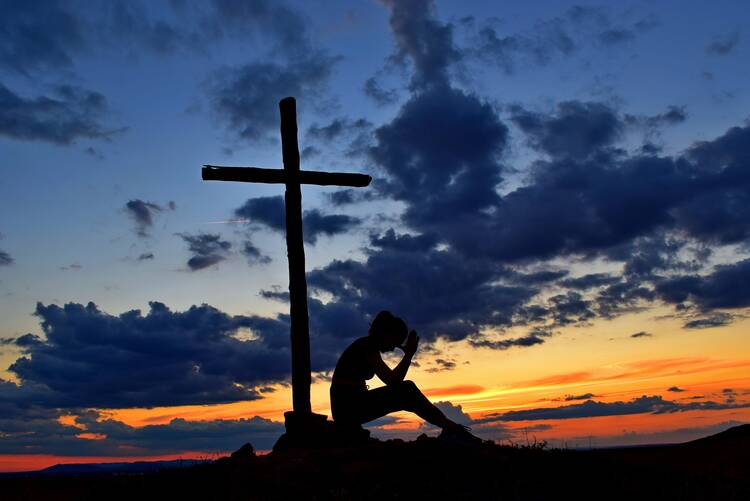A Reflection for Tuesday of the Twenty-third Week in Ordinary Time
And he came down with them and stood on a stretch of level ground.
A great crowd of his disciples and a large number of the people
from all Judea and Jerusalem
and the coastal region of Tyre and Sidon
came to hear him and to be healed of their diseases;
and even those who were tormented by unclean spirits were cured.
Everyone in the crowd sought to touch him
because power came forth from him and healed them all. (Lk 6:17-19)
It is a snapshot of a peaceable kingdom, a time of calm and compassion that briefly reigned before the betrayal and the Passion, the apostles first joined in a unique brotherhood of loving equals, not vying for authority over one another, not high-elbowing an advantage or working an angle that provided a meager edge of power or control or position. All were content to be part of this unprecedented community of reflection and healing, eager to share with all they would encounter—a merciful calm before a storm of suffering looming in time ahead of them.
And after that suffering was a victory they could not imagine, holding up a promise of salvation if we could only attain it. The early Christian communities that followed tried to recreate in a broken time that irenic moment glimpsed in today’s Gospel. They were sinners washed clean of their sins, trying to sustain this new life.
The first reading, Paul’s Letter to the Corinthians, captures that community faltering, falling into self-righteous judgment and recrimination, brother against brother and sister against sister, exploiting the laws of men to seek advantage over their Christian brothers and sisters, creating scandal before the broader community who thought they would know these Christians by their love. Instead, remonstrating and escalating, they deprive themselves of a salvation that had been freely given without ever having been earned.
Many of us call ourselves Christians today, but we don’t struggle to live the community these Corinthians attempted. Some of us live in communities literally gated from other people. Other gates, erected by class and wealth, race and religion, are less obvious but are equally efficient creators of outsiders and insiders.
Many of us call ourselves Christians today, but we don’t struggle to live the community these Corinthians attempted.
And now we fancy ourselves lords over new manners of community, these not wrought from stone and wood but virtually fabricated on computer servers. In the digital communities, we have performed little better. How quickly Christians turn to squabbling and judging in these electronic town squares, pulling community down instead of building it up.
We are not angels, though Paul says we may one day judge them, so I think it is alright to forgive ourselves when communities falter because of our pettiness, wrath or self-righteousness. The Corinthians no doubt struggled the same.
Did they heed Paul’s warning? In the aftermath of their failure to put old lives behind them and live this new Christian life, did they pull the scattered pieces of community back together and try again?
I like to think that they did, picking themselves up and pressing forward with an eye on that impromptu community by the Sea of Galilee, feeding the hungry, welcoming all newcomers, sitting at the feet of the master and drinking in every word of his wisdom, eager to share it with the world.








